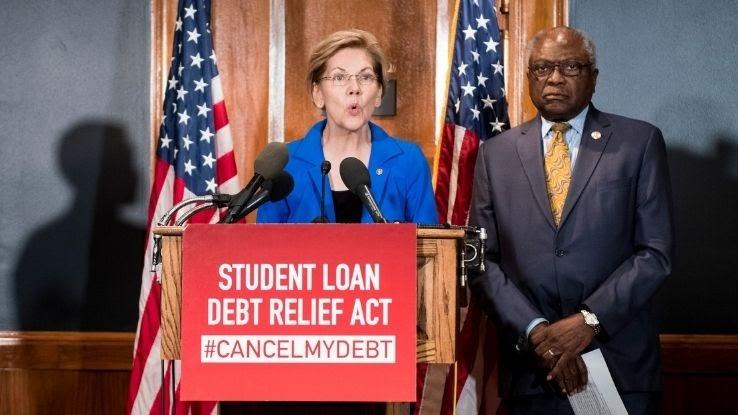How to Pay Employees in a Small Business

According to the New York Federal Reserve, the U.S. consumer debt stood at almost $14 trillion in the second quarter of 2019. To get more specific, mortgages, auto costs, credit cards and student loans are the four main areas of debt that have seen consistent growth over the past few years. However, regardless of how crushing your circumstances may feel, it is still possible to pay off your debt. Numerous programs alongside federal and private grants can drastically improve your finances.
In order to help you make a financial game plan, we'll take a look at grants geared toward helping folks with debt; social security administration programs; how to apply for financial assistance; and, even though student loans can feel out of your control, how best to tackle subsidized and unsubsidized loan types. Although it can feel overwhelming to take a good, hard look at your financial situation, doing so can help you make a clear, manageable plan — and that's nothing to scoff at.
Before we discuss any grants or programs, it's important to understand how you can stay on top of your debt management from the start. One of the most common pieces of advice? Always pay off your credit cards in full. Of course, this means never buying what you can't afford. Sure, credit cards allow us a grace period, but, eventually, we'll need to pay that sum — or more — back in full.

Although it may seem tempting to charge a big-ticket item and slowly chip away at the cost, your finances might change unexpectedly from month to month. What seemed like a solid plan, might go down the drain, leading to repayment issues and a lower credit score. Depending on the amount you borrowed, you could also get into legal trouble if you don't pay the loan back on time.
In fact, in 2019, the Social Security Administration recovered $2.2 million of debt through various debt collection tools. All of this to say, it's important to check how much you need to overpay and whether you have to overpay. If you don't agree with the overpayment amount, you can file an SSA-561 Request for Reconsideration form. Likewise, if you are eligible, you can submit a financial assistance application and receive government benefits or a grant to help pay off your debt.
Subsidized vs. Unsubsidized Student Loans
If you're a student or graduate, you may have had no choice but to take out a student loan — or several — in order to access the education you needed for your career path. Although you may have already borrowed that money, it's important to understand the difference between subsidized and unsubsidized loans.

For example, if you're an undergraduate student with financial needs, you may be eligible for a subsidized loan. As you may know, the amount you can borrow is determined by your chosen school, and selecting a subsidized loan allows you to avoid paying interest rates for the first six months after graduating. Often, it's that interest that really accrues, so this is definitely a helpful option. Additionally, if you're struggling with your debt, the U.S. Department of Education will pay the interest during a postponement of your loan payments.
On the other hand, if you don't demonstrate what is deemed "financial need," you'll likely be eligible for an unsubsidized loan. As is the case with subsidized loans, your school will determine the amount you can borrow. However, you'll be completely responsible for paying interest — no exceptions. If you fail to make your repayments, your interest will accumulate over time, which is why it's extremely important to stay on top of your repayments.
Grants are available to help pay off student loan debt, many of which are completely free. The state of New York offers the Young Farmers Loan Forgiveness Incentive Program to eligible students.
Grants to Pay Off Debt
Struggling to stay afloat? You may be eligible to receive grants to help you pay off your debt. In most cases, the grantor must fulfill their contractual obligation, so it's extremely important to read the fine print. For example, the Nurse Corps Loan Repayment Program can pay off up to 85% of your student loan debt if you're a licensed registered nurse or a nurse practitioner, but you must also work for two years at one of the Critical Shortage Facilities or become a nurse faculty at an eligible school of nursing. These sorts of industry-specific deals come with trade-offs, but for many borrowers such agreements are well worth it.

You can find the full list of grants to pay off debt on the official grants.gov website. Be sure to remain wary of grant scams, which will use your stress (and vulnerability) to nab your personal information. For example, if they claim they are a government agency, it's a scam: There's no such thing. Additionally, if they ask you to pay a fee for your free government grant, it's a scam — you don't have to pay a processing fee for a grant you've already been awarded. Thankfully, the Federal Trade Commission (FTC) has a handy list of rules to follow when evaluating whether or not a grant is real. Learning how to get grant money to pay off debt is vital to improving your financial future.
Other Tips for Paying Off Debt
Interested in other common ways to pay off debt and stay on top of your finance management? First off, you should always check your direct debits and see if you can cut out any service(s) you're no longer using. You may be surprised to find old direct debit payments that are long overdue for a cancellation. Likewise, you can reduce your outgoings by summarizing your financial situation.

Furthermore, switching your insurance could help you save hundreds. New customers often get better insurance deals. Although loyalty goes a long way, sometimes switching providers can help save you money in the present. Check the dates of your policy renewal and, if you find a better deal somewhere else, switch when it's possible.
If your debt is too high to manage — or if you can't find a way to consolidate your credit cards and other debts — you might need to consider filing for bankruptcy. You may file a petition as an individual or couple (or as a business). This will help get clear of your debt and create an affordable repayment plan. Of course, the process is rather complicated and it could have long-term ramifications on your ability to rent or seek future loans, so be sure to hire free debt advice before proceeding with a bankruptcy filing.
Finally, it's always important to remember that paying off a large sum of debt may take time. Often, these things don't just vanish overnight. Instead, living debt-free requires solid, long-term budgeting and repayment goals. Every little bit, from checking your outgoing and canceling your direct debit to looking for ways to make some extra money, can help. If you're unsure where to start, try speaking to a financial advisor. And, although money can be an awkward subject, be sure to communicate your financial situation to your lender. After all, they may offer various repayment options that are more affordable for your current income level.
MORE FROM ASKMONEY.COM
How to Pay Employees in a Small Business
Source: https://www.askmoney.com/budgeting/grants-to-pay-off-debt?utm_content=params%3Ao%3D1465803%26ad%3DdirN%26qo%3DserpIndex
0 Response to "How to Pay Employees in a Small Business"
Post a Comment